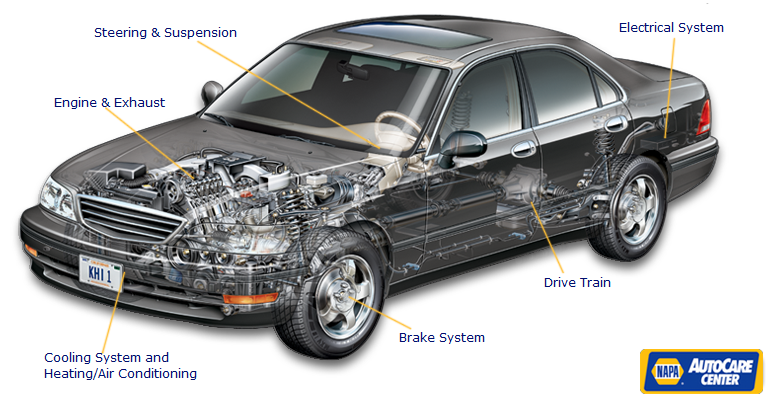Did you know ...?
Preventative Maintenance Tips
Courtesy of the Automotive Service Association
According to recent studies, 5 percent of all motor vehicle fatalities are clearly caused by automobile maintenance neglect. The following simple and inexpensive preventive checks will greatly extend the life of the vehicle, ensure safer operation and even benefit the environment.
This step extends the life of the moving
components of the vehicle's suspension
system.
and clean them as needed. The battery fluid
also should be checked and filled if it is
low, unless it is a maintenance-free battery.
including headlights, turn signals, and brake
and taillights.
overheating. The cooling system should be
completely flushed and refilled about
every 24 months.
can pose a safety hazard. Replace worn
blades and get plenty of windshield washer
solvent.
fast, so forget about those five-minute
warm ups on cold winter mornings.
recommended in your manual, or sooner
if you notice pulsations, grabbing,
noises, or longer stopping distance.
Minor brake problems should be
corrected promptly.
the engine has thoroughly cooled!
The tightness and condition of drive
belts, clamps, and hoses should be
checked by a pro.
The only accurate way to detect a weak
battery is with professional equipment.
5,000 miles. Tire pressures should be
checked once a month; check them while
they're cold before driving for
any distance.
Under-inflated tires make it harder for your
car to move down the road, which means your
engine uses more fuel to maintain speed.
you drive, the more fuel you use.
For example, driving at 65 mph rather than
55 mph, increases fuel consumption by
20 percent.
plug or plugged/restricted fuel injector
can reduce fuel efficiency as much as
30 percent.
cracks or missing sections or segments. Worn
belts will affect the engine performance.
Always consult your owner's manual for individual service schedules because maintenance requirements vary by manufacturer.
